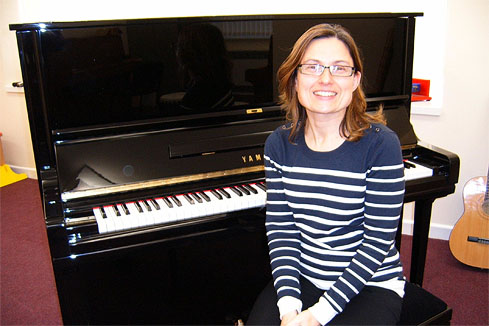
After completing an undergraduate degree in music, Wendy knew that she wanted a career in music as well as the opportunity to work with a wide range of people. Training to be a music therapist very much offered her this opportunity, as well as the chance to use, develop, and adapt her creative skill to support people.
She is now a music therapist and head of arts therapies for Hertfordshire Partnership University NHS Foundation Trust, North Essex.
How I got into the role
It was while studying music at university that I was first introduced to music therapy by my then flute professor; the idea of using music in such a creative and improvisational way captured me from the very first moment! In addition, I had developed an interest in psychotherapy while at university and had used therapy myself during my studies.
Following the completion of my degree and a period of solo travel abroad, I returned to audition for a postgraduate course in music therapy (a Masters today) and to work in several part-time jobs to raise money to support myself during my music therapy training at the Guildhall School of Music and Drama.
What I do
In the first few years after qualifying as a music therapist, I worked with a number of different client groups, including people with a learning disability. It was not long before I developed a real connection and respect to this particular group of people and decided to focus my career in this clinical area.
As a music therapist, I work with clients who have a learning disability and are referred for therapy owing to something in their past that is having a negative impact on their day-to-day life, whether because of trauma, difficulties with communication, or perhaps social and relational issues. I work with people both individually or in groups.
As a manager of a department, I support a small team of arts therapists (music therapy, dramatherapy, and art therapy) to respond to referrals and work as integral members of the Learning Disability Service.
The best bits
What never fails to move me in some way is just how musically creative people with a learning disability can be. It gives me a sense of great personal reward to at times share this with them.
It also gives me a sense of true satisfaction if someone I have been working with is able to use the skills developed and learned inside the therapy room in other areas of their life in a positive way. For example, to relate to their family and their carers in an easier way, to reduce aggressive behaviour or a reduce their level of self-harm, and the ability to develop their relational skills to enable them to take a college course or join a new social group.